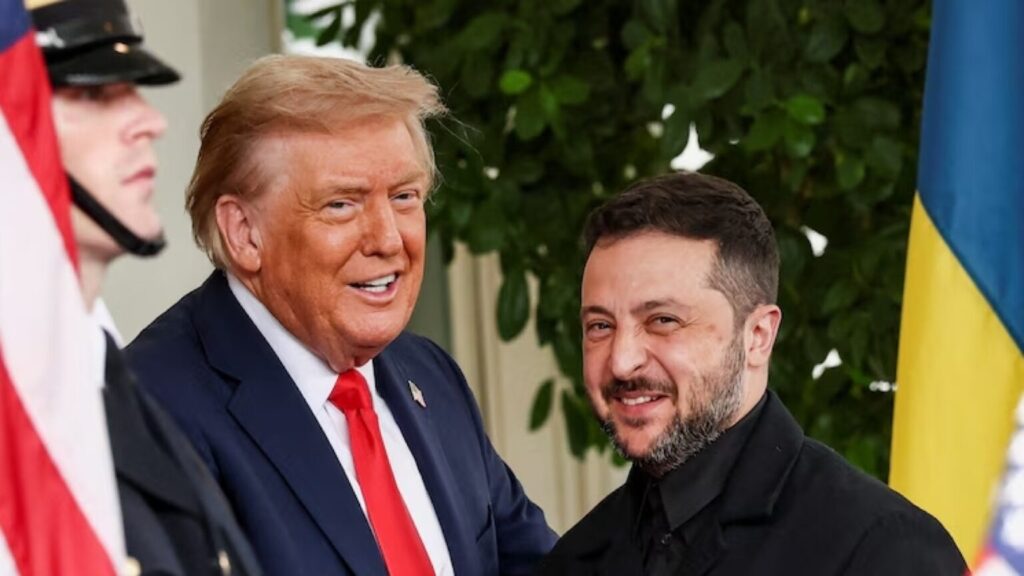The meeting at the White House between Donald Trump and Volodymyr Zelensky was marked by the U.S. president’s proposal to condition any potential peace agreement on Ukraine renouncing its bid to join NATO and abandoning all claims over Crimea. Washington’s position has raised concerns in Brussels, where there are fears that a transactional approach could undermine the multilateral framework built in support of Kyiv.
Trump insisted that the United States would maintain its involvement in Ukraine’s security, but stressed that the first line of defense must rest with the Europeans. He also floated the possibility of a trilateral summit with Putin and Zelensky, while suggesting that a ceasefire would not be necessary as a prerequisite for negotiations.
Zelensky responded by reaffirming that no territory is up for negotiation, stressing that Crimea and Donbas are part of Ukraine. His firmness aligns with the position of EU institutions, which have repeatedly declared that Ukraine’s territorial integrity is non-negotiable.
The U.S. proposal comes at a time when the European Union has intensified its financial and military support for Kyiv. Brussels is aware that any American retrenchment would force the Twenty-Seven to strengthen their strategic autonomy and assume a greater role in Europe’s security.
European Leaders Reaffirm in Washington That Ukraine’s Territorial Integrity Is Non-Negotiable
The presence of European leaders in Washington served to convey a message of cohesion in the face of the war in Ukraine. Emmanuel Macron, Ursula von der Leyen, Giorgia Meloni, Keir Starmer, and others underscored that Ukrainian sovereignty is an unshakable principle and that any negotiation must be based on respect for territorial integrity.
The leaders also called for an immediate ceasefire as a first step toward any dialogue, in contrast with the U.S. position. They reiterated that Europe would sustain its political, military, and economic commitment to Kyiv for as long as necessary, projecting an image of unity both to public opinion and to Moscow.
The White House summit was interpreted in Brussels as progress in recognizing the European Union as a global diplomatic actor. The Twenty-Seven sought to make clear that their support for Ukraine does not depend on external shifts, but stems from a common policy of defending international law and European stability.
